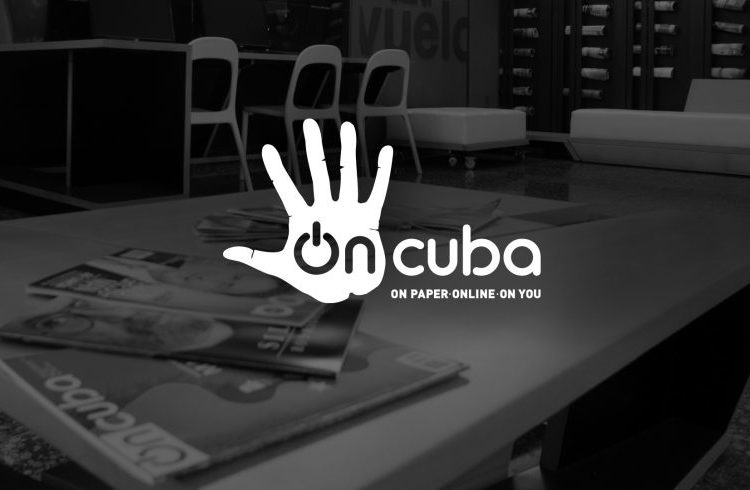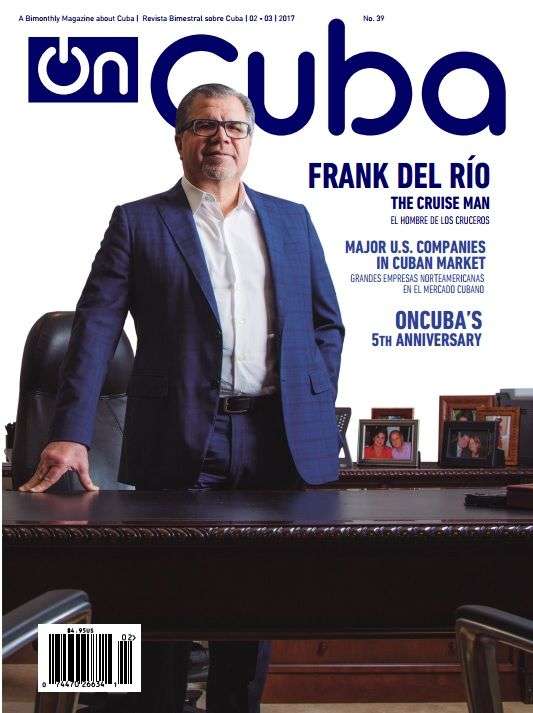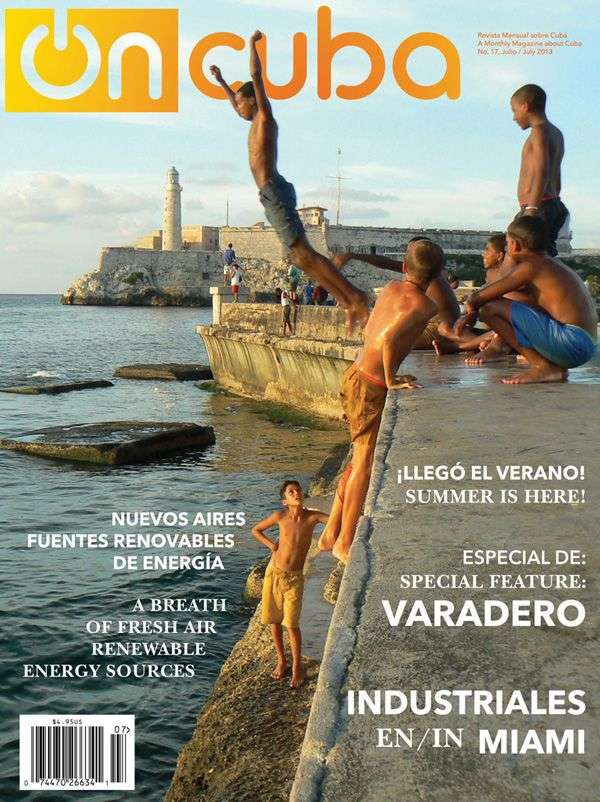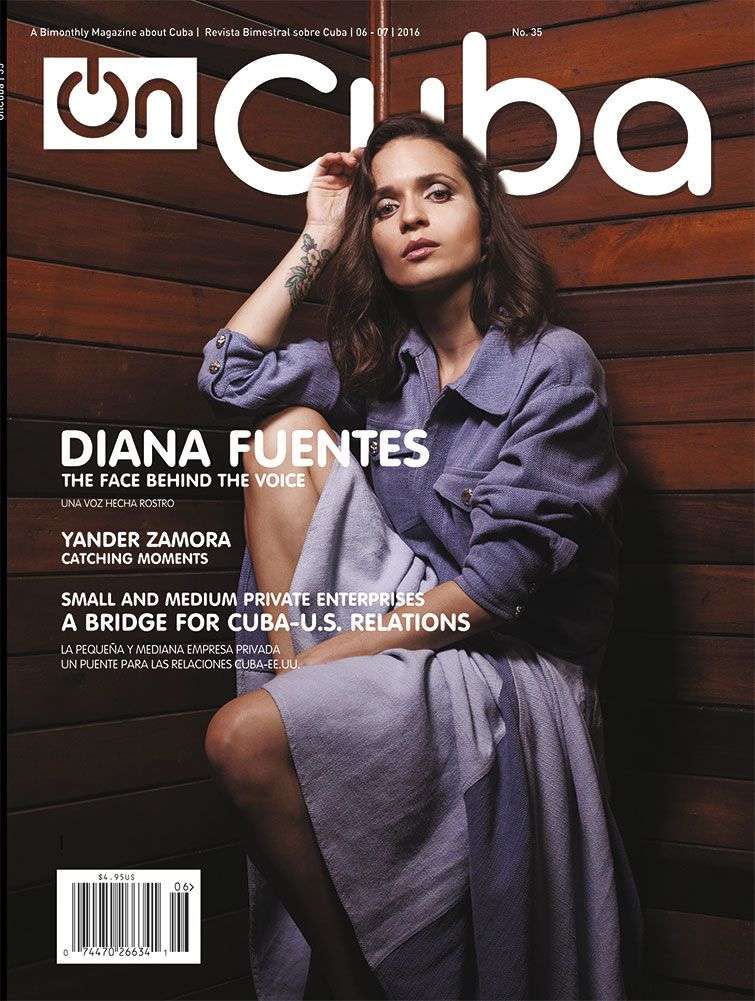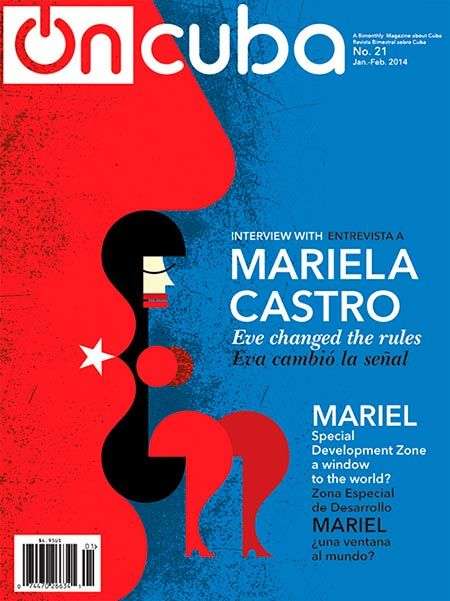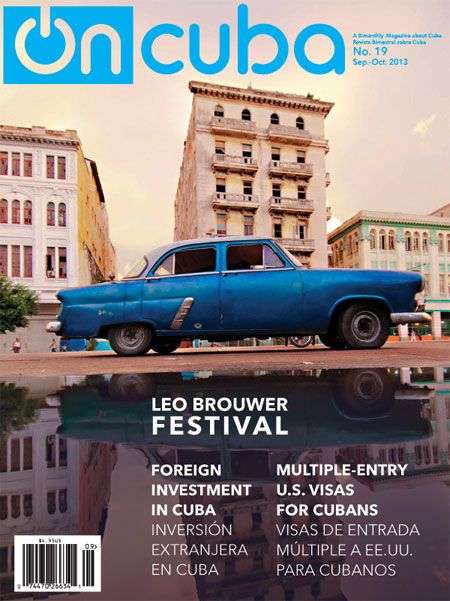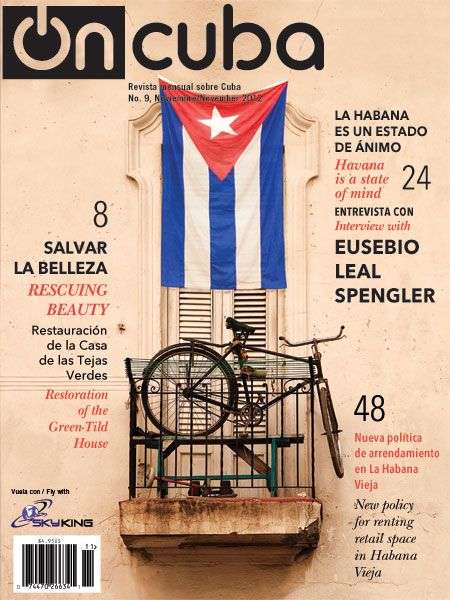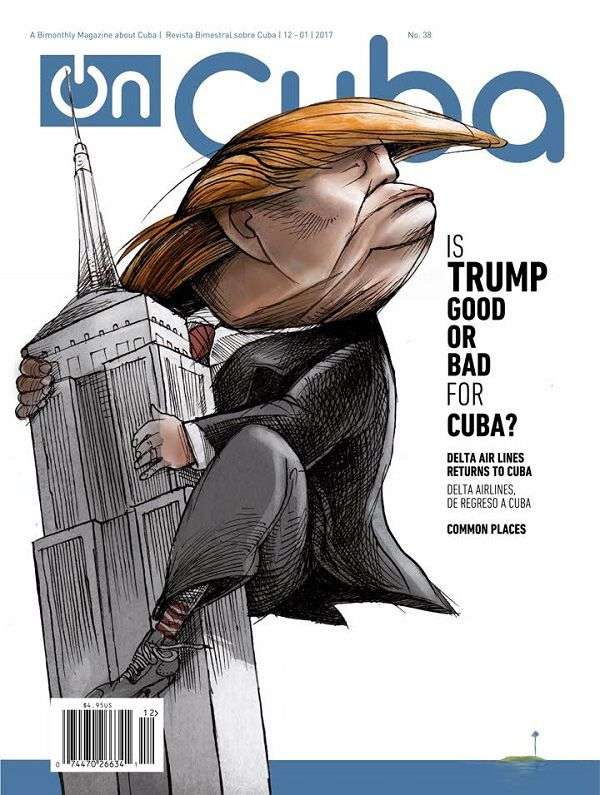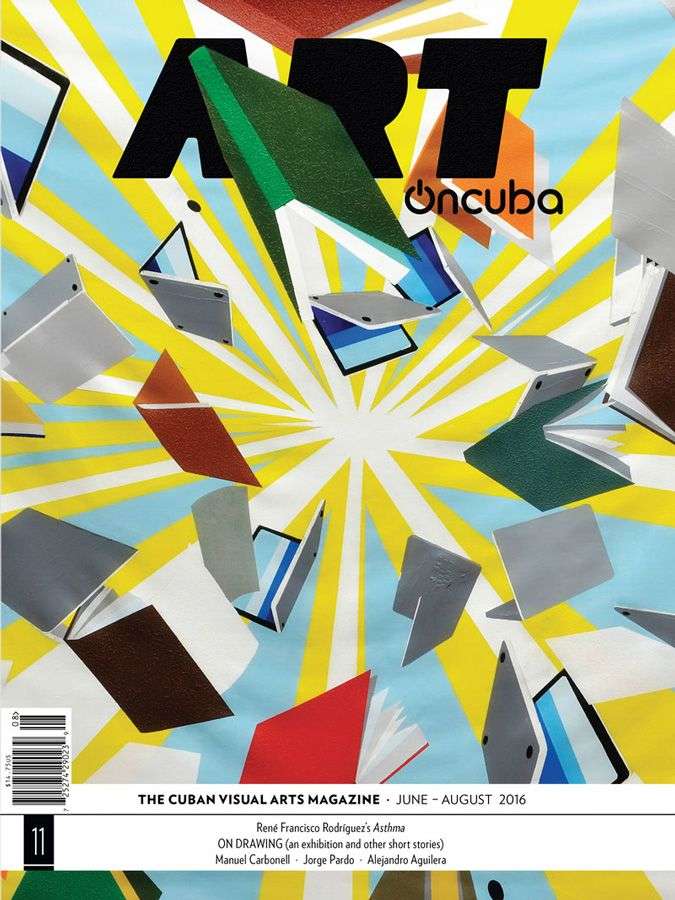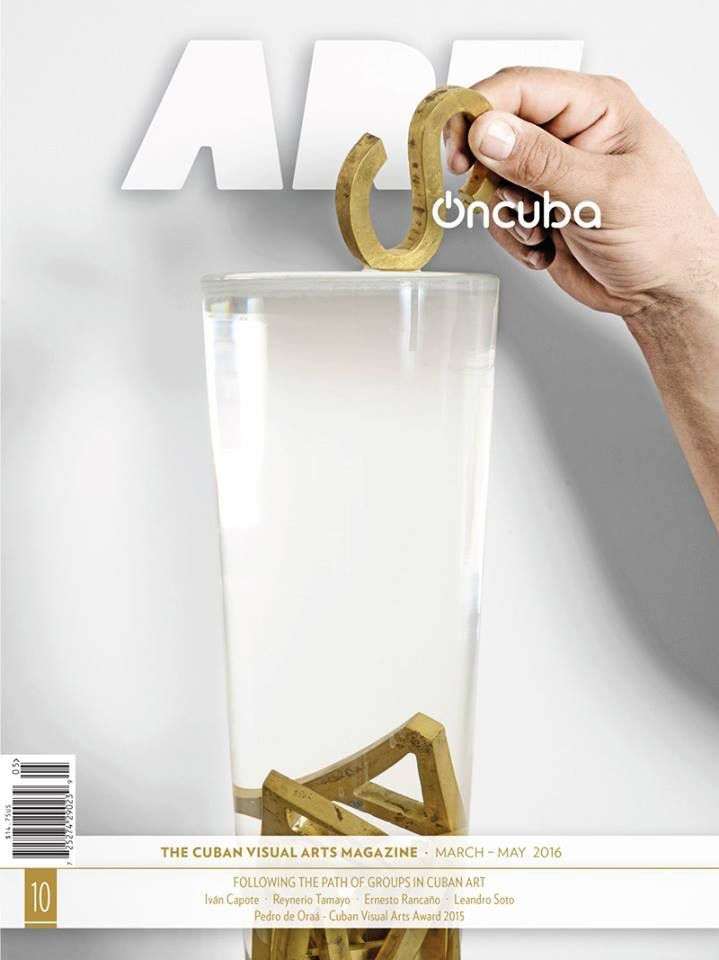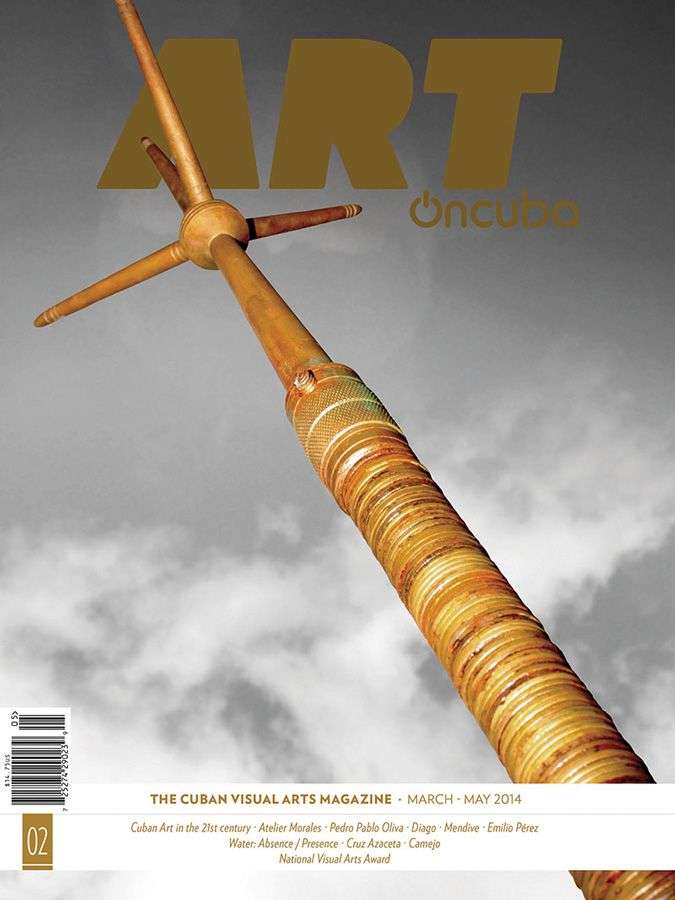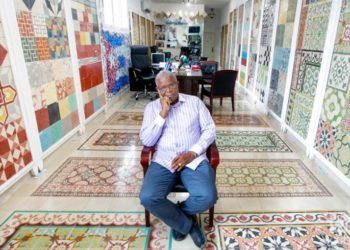If it is as George Orwell says about journalism: “printing what someone else doesn’t want published, everything else is public relations,” OnCuba is on the right path, in that search for the truth where there’s always someone who’s happy or upset.
Founded by Hugo Cancio, a Cuban American residing in Miami, OnCuba is celebrating in March the first five years of its principal edition. What began as a magazine for charter flights between Cuba and the United States, and a webpage with some followers, today is a U.S. communication platform, with a permanent news office in Havana, hundreds of thousands of readers and an unprecedented distribution in the United States.
OnCuba anticipated the reestablishment of diplomatic relations between Havana and Washington and since its beginnings its goal was to build bridges between the two countries. It has become a referent, essential for those wanting to know about Cuba as well as for Cubans wherever they live.
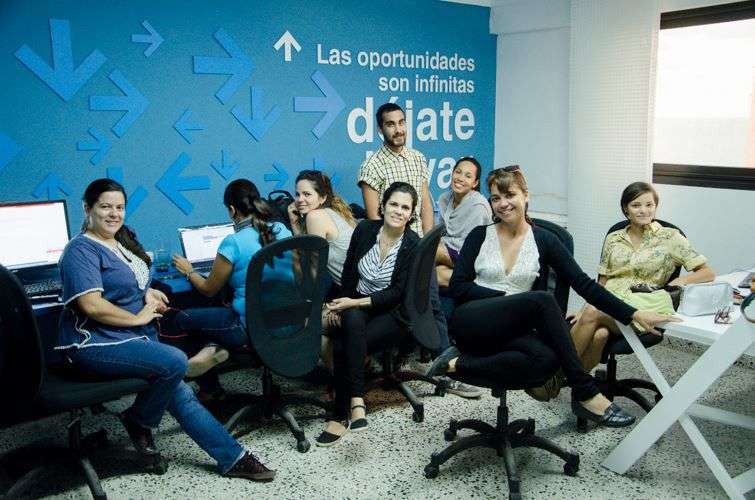
OnCuba from within
I believe that none of us who founded OnCuba imagined the reach it would have in such a short time. Our objectives were always to write about Cuba with an unbiased view, avoiding the extremes so common in news about the island; placing human beings at the center. Writing about Cuba based on its big and small stories, its happy moments and its anxieties, which are all part of life, and trying to find a dialogue based on that, always seeking a bridge, a point to meet, analyze, communicate; dealing with Cuban reality in an honest way from the point of view of writers, journalists and specialists who are referents in their fields of investigation; and wishing that all those who feel they are Cuban, no matter where they live, be a part of our palette. Now, five years since the first edition, we produce and distribute contents in several formats: printed, digital and audiovisual. We offer news, data, opinions, we report stories, we interpret the facts, and we reflect on very diverse issues. We propose a transnational vision of Cuban reality, we are a means of interlocution and of reference, increasingly more recognized by influential actors in as well as outside Cuba.
We comprise a group of dissimilar voices of writers, journalists, academicians, of a wide range of ages and with different ways of analyzing and interpreting events. I believe our principal strength lies in the wide range of collaborators OnCuba has in all parts of the island and out of it. They are our eyes, voices, OnCuba’s soul.
Tahimi Arboleya Delgado
Editorial Director of OnCuba and Editor of OnCuba Magazine
Founder
I am quite acquainted with the magazine, I saw it being born. Its first designer, Laura Díaz Milán, worked for some time in our Studio and that allowed us to be present while its basic visual structures were created: the heading, the editorial guidelines, among others. Laura went to work full time for the magazine, but we’re still in contact and were able to assess each edition since the first issue. As a fact of life, other designers arrived, who seriously responded to the demands of each moment. And, fortunately, I was charged with restructuring that which looked like the most serious problem of the publication: the harmonious coexistence of the blocks of text in two languages. And it was no small problem. We agreed to prioritize the text in English, since its principal market or distribution space was the United States. The decision simplified the difficulties to such a point that, starting then, the efforts were focused on increasing its aesthetic quality – if this were possible – and adapting the philosophy of the design to the predominant one in the environment in which it would be placed. It has been a challenge, but also an excellent opportunity to work with a style that at that time was alien to us. The professional experience has been gratifying since the start, and it is said that the results haven’t been bad.
What’s most important are the human relations that were created, the new friends, commitments that go beyond the end product. OnCuba’s aim, from my point of view, has always been to build that indispensable “bridge between the two shores.”
Making Cuba’s nicest face known in the midst of a media bombardment against Cuba; placing at the consideration of thousands of readers the realities that are avoided and hidden in one and the other side, creating a more coherent image of the real Cuba. Its pages have made known those who work for Cuba, those who invest resources and energies on its permanence, its health, its revival. And behind each issue we suppose the presence is felt of those of us who also love Cuba, sit to make the mockups, to choose and correct images, to edit and work for it.
Jorge Rodríguez Diez
Director of the R10 studio, graphic designer and visual artist, OnCuba’s designer since its issue number 27.
It went from being a challenge to a dream to be built, to be the core from which my vision of art was structured, my virtual and real tour of the world, my vital space. It has been an extraordinary experience to have been able to work with Llilian Llanes in this constantly growing sort of volume of the history of Cuban art, which in each edition we write bit by bit.
Déborah de la Paz
Editor of ArtOnCuba
For me, each issue of the magazine is a trip where I discover every day stories and images, and on the way I try to harmonically combine them.
When making the mockup of articles I am generally inspired on the pieces, from them I extract elements that allow me – always maintaining the graphic style – to be able to link the components of the page. It can be a color plane, or some line that crosses the sheet of paper, or a type of letter that highlights a word. I want every issue to have its own personality, and that as a whole they are seen as a coherent volume. That’s how I “play” with the balance in the chromatic palette, in the empty spaces, in the size of the titles, so that in the end readers can also enjoy the trip.
ARTOnCuba has been an experience that has greatly influenced my work, in addition to being a wonderful source of knowledge; it has allowed me to develop my professional skills. I feel I am fortunate since I can combine two of my passions, art and design.
Victor Manuel Cabrera
Designer of ARTOnCuba
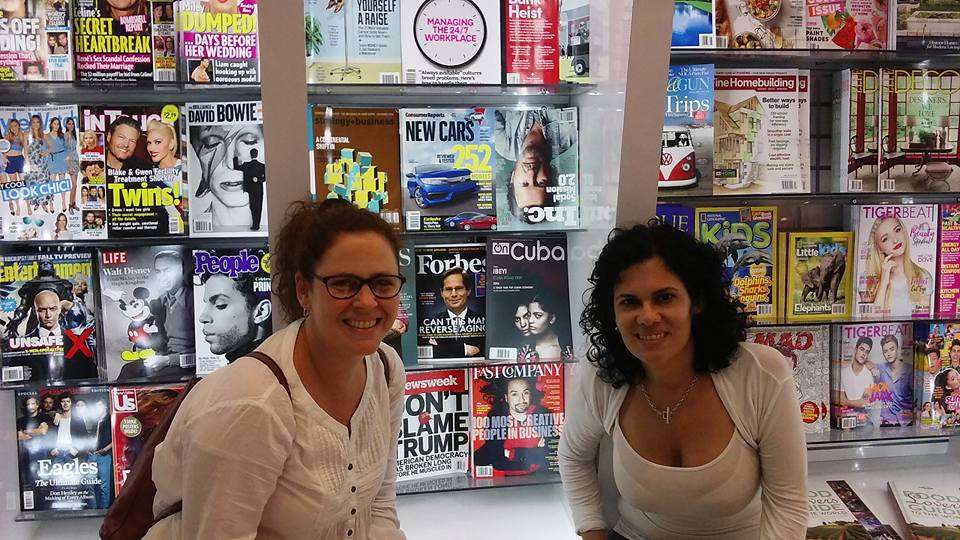
OnCuba is the space where a group of Cuban journalists write for the magazine we would like to read. And that journalism that we like is the one about conflicts and that seeks beyond evidence, which does not adjectivally use adjectives but rather builds the description, the one that takes into account that on the other side of the screen there is a reader who doesn’t want to be underestimated.
It has many voices and many tones, and it wants to modulate them with fresh news and with ease for the story to flow. Some of them are young, adults, more conservative or more insolent, but all converge organically and speak of a Cuba told since not long ago from journalism, a Cuba that in addition does not determine the territorial borders of the island.
As editor of the magazine, my work consists in coordinating those stories in the big picture; endeavoring that the different focuses are primed by edition so they complete a discourse, the discourse of OnCuba.
Mónica Rivero Cabrera
Cuban
Editor-in-chief of the OnCuba Web
Because of its official distribution in U.S. territory and it online positioning, from the commercial point of view OnCuba facilitates the visibility of those Cuban businesses and institutions that are seeking to be present in the U.S. market. The platform has an unprecedented distribution in the United States, and its sections are complemented, and they guarantee that when you place an ad about your products and services on our platform, you incorporate the added value we offer, not just because of its wide-ranging coverage, but also because of the wealth of possibilities and of formats to make the message reach. We increasingly have more users and readers on the island, so our platform also functions bidirectionally in that sense. In 2012 we inaugurated our office in Havana and in 2016 in Miami. We have a team of excellent totally committed professionals. Personally, it has been arduous work, to which we have given all our effort, our time, our capacity and our hopes.
Ariel Machado
Vice President of OnCuba and of Fuego Enterprises Inc.
Founder
It started off with the aim of keeping informed the passengers traveling from the United States to Cuba, to make known the country where they were going to land after a 45-minute flight. They came contaminated with the idea they had from the U.S. media. At that time only the media in Miami spoke about Cuba, the country did not play the leading role it has today in the rest of the U.S. states. It was necessary to wait for The New York Times to publish an article to have an idea of the real Cuba.
On the one hand, the Cuban state media would praise the achievements of the Revolution and would minimize some shortages and, on the other, the media in the south of Florida were conflicting, two diametrically opposite extremes. There was a zone of silence; the Cuba where I lived, the one I see every time I come, was not really reflected in any of the two sides.
We set out to make a magazine for those persons who didn’t know about the Cuban reality, and also to please that idea of the Cuba that I love. Those from my generation never felt represented by any of the two sides.
In the beginning we became aware that Cuba was involved in a process of important changes; and that need to constantly provide news coverage with a social focus fell on the work of the online edition, in which its editor-founder Mayle González played a very important role, and afterwards we have been very fortunate to have valuable professionals as editors of the OnCuba online edition.
Many persons from Florida claim that we are a project promoted by Cuban intelligence and, on the other hand, we have been accused here in Cuba of being a project financed by the United States, precisely because we do not define ourselves as Cuban national press nor do we follow the game of the U.S. media.

If both sides like us and hate us it means we are doing something important; I believe that is the real exercise of the press. I consider that OnCuba has contributed to certain changes in the Cuban media; it has encouraged them to evolve.
It became a media platform. We never imagined the growth it had and I believe it is a phenomenon to be studied. We have a magazine on art and another dedicated to real estate. We achieved stability starting with the unexpected selling of ads. There is nothing more beautiful for me than this project, which arouses the most emotion, concern and satisfaction in me.
Hugo Miguel Cancio Morúa
Editor-in-Chief of OnCuba
President of Fuego Media Group and Fuego Enterprises Inc.
Founder
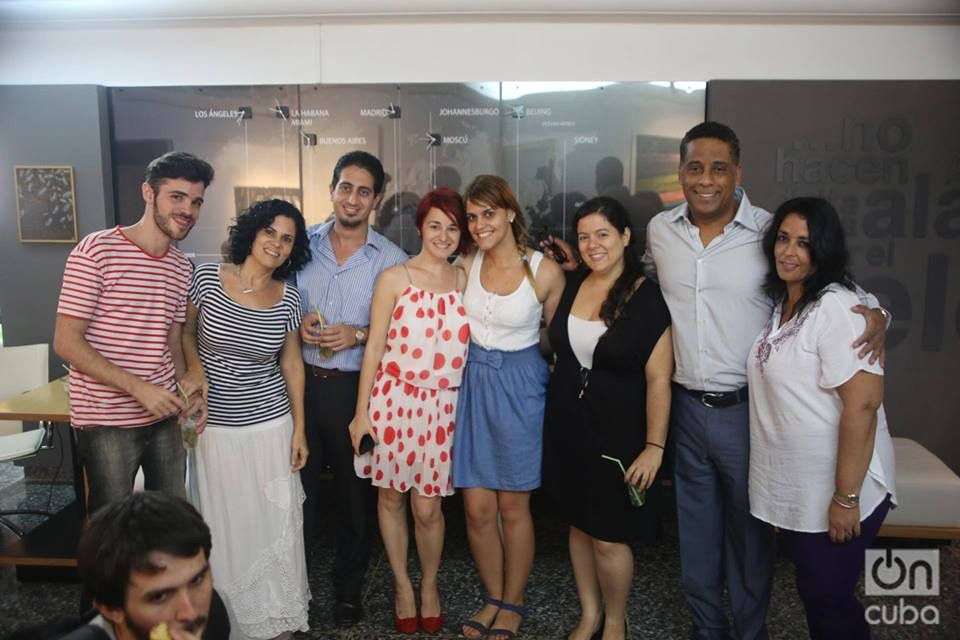
OnCuba from outside
I believe nowadays there is no other publication that has better information about Cuba. It always has extremely interesting interviews with persons in and outside the island, which somehow contributes to explaining the constant and changing Cuban reality.
Silvia Wilhelm
Cuban
President of CubaPuentes Inc.
OnCuba deals with issues about national and transnational reality with a critical and objective voice, from a constructive and renovating position. Its chronicles do not recount a paradise. Neither do they fuel an apocalyptic and distorting agenda. These poles, between which journalism about Cuba on both shores has traditionally moved, go straight past OnCuba. It is precisely that unusual absence of common places that, for me, takes us by surprise.
María Isabel Alfonso, Ph.D.
Cuban
Associate Professor of St. Joseph’s College, New York
From the economy, relations with the U.S. to baseball, OnCuba presents us with an intelligent and charismatic journalism that challenges the distance of the official media and the persistent stereotyped views. Congratulations.
Pavel Vidal, Ph.D
Cuban
Doctor in Economic Sciences, Professor of the Universidad Javeriana de Cali
Compared to many publications on Cuba, it avoids the old polarization between the exile’s voices and the voices of official circles. It is not afraid of bringing to light from journalism Cuba’s problems, but neither does it deny its achievements. In that sense, a new Cuba is incorporated, appealing to a generation of Cubans and Cuban Americans who are tired of being trapped in the antagonisms of the past and who are ready to build a future based on honesty, reconciliation and mutual respect. For U.S. visitors it gives an accessible and entertaining vision of Cuban reality that will help them navigate in their meeting with the island, and to encourage them to return for more.
William LeoGrande, Ph.D.
American
Political scientist. Professor of Government and former Dean of the American University School of Public Affairs. Expert on Latin America
It is fortunate that OnCuba exists, that it is an intelligent magazine. It should never stop coming out because at present it’s the most necessary magazine about us outside Cuba.
Maestro Leo Brouwer
Cuban
Musician, composer, director, arranger, guitarist

